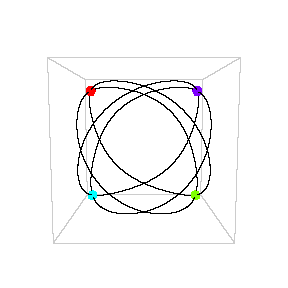- Have Fun.
- Be in the Moment.
- ASK!
- Take Risks.
- Go to the Panels you Want to Go To.
- Talk to Those People You Want to Talk To.
- Forget the Sales.
- INTRODUCE PEOPLE TO EACH OTHER!
- Send an Email Later that Night.
- HAVE FUN!!!!!!!
1) Have Fun. Everyone wants to be around someone who is having fun. Have fun – enjoy the people you are speaking to, enjoy the talks you are listening to.
2) Be in the Moment.
At conferences, it can be easy to be distracted and look around. But you’re not doing yourself any favors. If you’re speaking to someone and you’re looking around to see when the speakers from the last panel will come out so that you can say Hi to one of the speakers, the person you’re speaking to will not have a great experience, and you won’t have a great experience. In this case, the grass is not always greener. Solutions? Wait patiently if you’re waiting, and if you’re speaking to someone, give that person your full attention. It is much better to excuse yourself in advance, “Great to meet you, I’m going to go wait for someone right now,” than to be absentminded and preoccupied when speaking with someone.
3) ASK!
This is maybe the most important point. Ask questions. There is no such thing as a dumb question, or anaive question. Ask. You may be in a different field than another person. You may be used to different jargon. Ask. Have fun with asking questions. Be genuinely curious. Asking is fun.
4) Take Risks.
Do it! Just do it! If someone spoke on a panel, and you’d just love to say Hi, or ask something, JUST GO UP TO THAT PERSON. At a conference, everything is fair game. People are friendly. Take a social risk, and just do it. If you don’t tend to enjoy being extroverted, just act it for a few moments, and talk to whom you want to talk to. Remember The More, The More: the more you practice going up to people you want to speak to, the better you’ll be at this.
5) Go to the Panels you Want to Go To.
Every time you think, “let’s do this because I should,” you’re telling your brain, “I am willing to be bored, be exhausted, be broken but do this anyway.” Brains don’t like that – they like to learn, to play, to be ALIVE. Brains like you having fun. Go to a panel that seems the most fun to you in that time slot, the panel that seems most exciting. Any panel can be useful. Any. You can learn something anywhere. Go to the ones where you’ll have the most fun. Then you’ll get the most out of it.
6) Talk to Those People You Want to Talk To.
The points of (#1 Have Fun) and (#2 Be in the Moment) are that you are doing what you want to be doing. You are going to a conference for yourself usually. While at the conference, do what you want to be doing. Don’t go to speak to the technology folks or the finance folks because “it’s what you think you should be doing.” Do what you want to do. Your energy in doing what you want to do will make those interactions just that much more alive and engaging.
7) Forget the Sales.
You are not at the conference to sell. Every sales relationship is exactly that – a relationship. You’ve probably heard this, and it’s true – don’t ever think about closing a sale. Think about opening a relationship. The relationship may not ever lead to a sale. It doesn’t need to. Relationships are about energy, common interests, fun. The sales will happen as long as your product/service is great, and as long as you’re a real, ethical person. It’s too much stress at a large conference – and almost anytime really – to focus on “sell, sell, sell.” Change that to “enjoy, enjoy, ask questions.” After all, life is about living.
8) INTRODUCE PEOPLE TO EACH OTHER!
After (#3 ASK), this is my favorite. If you’ve met Jordan, who is launching a phone-info-online business, and then you meet Sarah, who has opened launched several related phone-info busiensses, suggest to Sarah, “Oh, if I see you and Jordan near each other, I’ll definitely introduce you. I think you’d enjoy meeting each other.” If you meet people who should be in touch with each other, ask the second person you meet whether you can put him in touch with the first person you met. Then ask the first person by email… “can I e-introduce you to so-and-so?”
9) Send an Email Later that Night.
If you meet someone you think you may want to keep in touch with, send an email later that night. Ideally, mention something specific that you and that person talked about – both for the person’s memory, and for yours! Business cards expire. If you don’t use a business card two weeks after you receive it, you might as well throw it away. Really. Business cards make sense if you’re in touch with that person, not to say, “Oh I once met such and such person at a conference.” Business cards make sense if you use them, not as collector art.
10) HAVE FUN!!!!!!!
And why do I emphasize having fun? Because everybody is stressed, everybody has an intense life. Let go, and things will come easily to you.*
* Why might things come easier once you let go and have fun more? Because of Fredrickson’s broaden-and-build emotion theory (that when you’re in a broad, good mood, you see more solutions and opportunities than when you’re in a closed lousy mood). Because of Seligman’s optimistic explanatory style (what you tell yourself about a situation affects how you react to that situation). Try it. It can’t hurt at one conference.
Enjoy the event!
If you see me with my nametag “Senia Maymin Positive Psychology,” come up to me and say Hi! Best,
Senia
 Have you ever been around a person for whom so many things feel like a new experience? “This is the first time I’ve seen a flower that color!” Have you ever been around a person who tastes an apple pie with you at a restaurant, and says, “This is the best apple pie I’ve had in the past year!” And doesn’t that somehow feel good? Just that experience that you are with that person when she is tasting the best apple pie of the year. That’s a small example, but suppose someone says to you not only, “you made my day,” but “that’s the most wonderful thing I’ve heard all year.” Or what if you’re speaking with a colleague and he says, “Hey Senia, that’s the first time I’ve ever thought about this work situation that way!”
Have you ever been around a person for whom so many things feel like a new experience? “This is the first time I’ve seen a flower that color!” Have you ever been around a person who tastes an apple pie with you at a restaurant, and says, “This is the best apple pie I’ve had in the past year!” And doesn’t that somehow feel good? Just that experience that you are with that person when she is tasting the best apple pie of the year. That’s a small example, but suppose someone says to you not only, “you made my day,” but “that’s the most wonderful thing I’ve heard all year.” Or what if you’re speaking with a colleague and he says, “Hey Senia, that’s the first time I’ve ever thought about this work situation that way!” 







